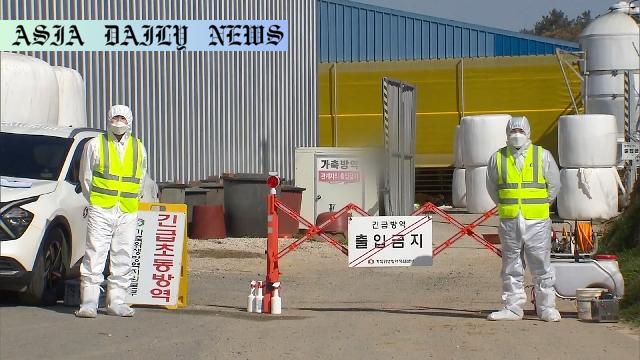Foot-and-Mouth Disease confirmed in South Korea, leading to vaccination efforts and culling of 180 cattle to control its spread.
South Korea confirms first foot-and-mouth disease case in nearly two years.
180 cattle culled in South Jeolla Province to prevent the spread.
Nationwide livestock vaccination plans expedited to counter outbreak.

First Case of Foot-and-Mouth Disease in Two Years
The South Korean Ministry of Agriculture, Food and Rural Affairs announced a confirmed case of foot-and-mouth disease at a beef cattle farm in South Jeolla Province. This marks the first reported outbreak in nearly two years, as the last case was documented in May 2023. The newly affected farm housed over 180 cattle, all of which are being culled as part of immediate containment measures.
The disease, known for its highly infectious nature, poses a significant threat to the livestock industry. Though not directly harmful to public health, the economic repercussions are often severe. The Ministry reinforced its commitment to preventing further spread by implementing robust measures, including localized disinfection initiatives, enhanced surveillance, and the activation of an early-response system.
Accelerated Vaccination Plans Across the Country
In response to the confirmed case, South Korea is expediting its vaccination schedule for cattle and livestock across the country. Originally planned for April, the nationwide vaccination drive will be rolled out within this month to bolster immunity and protect vulnerable livestock populations. Vaccination is considered one of the most effective tools for curbing the spread of foot-and-mouth disease and mitigating potential outbreaks.
The Ministry has urged local governments to cooperate in enforcing preventive guidelines. Farmers are being asked to strengthen on-site biosafety measures, such as restricting movements of livestock, maintaining hygiene protocols, and promptly reporting any suspected symptoms among animals.
Heightened Biosecurity Measures and Economic Ramifications
The immediate focus remains on controlling the outbreak’s potential spread. Roads and farms near the outbreak site are undergoing rigorous disinfections, and temporary movement restrictions are in place for certain regions. South Korea’s swift and comprehensive response aims to minimize disruptions to one of its vital economic sectors.
Foot-and-mouth disease outbreaks often lead to significant economic losses, affecting the meat and dairy industries as well as export markets. This incident underscores the importance of proactive health and monitoring frameworks to detect and address livestock health emergencies promptly.
Moving forward, the government plans to evaluate its livestock management strategies, focusing on strengthening immunization schedules and enhancing infrastructures for disease surveillance. These measures, along with international cooperation, will be critical in fostering long-term resilience against such outbreaks.



Commentary
Swift Government Action Reflects a Proactive Approach
The confirmed case of foot-and-mouth disease in South Korea is a stark reminder of the vulnerabilities within our global livestock industries. While this outbreak is concerning, the government’s swift and proactive measures provide reassurance. The immediate culling of infected cattle, combined with expedited vaccination efforts, demonstrates the nation’s dedication to controlling the disease before it spirals out of control.
Broader Implications for Livestock Management
This incident highlights the importance of continuous investment in biosafety infrastructure. A robust surveillance system, coupled with consistent vaccination drives, plays a pivotal role in preventing outbreaks of such scale. South Korea’s decision to fast-track its vaccination schedule serves as a model for other nations facing similar threats to agricultural health and food security.
It’s also worth considering how these outbreaks can impact farmers economically and emotionally. Beyond the immediate financial repercussions of culling infected livestock, there’s a ripple effect across meat and dairy supply chains. Long-term rehabilitation support and compensation for affected farmers are as crucial as the preventive measures themselves.
Lessons for Future Outbreak Management
As globalization intensifies, so too does the risk of infectious diseases spreading across borders. This event offers an opportunity for South Korea and other nations to validate and strengthen their readiness for agricultural crises. Collaboration between government bodies, international organizations, and the farming community will be vital in combating future outbreaks.
In conclusion, while an outbreak of foot-and-mouth disease is undoubtedly alarming, South Korea’s decisive actions provide hope for quick containment. It serves as an important case study on the value of vigilance, early intervention, and international cooperation.